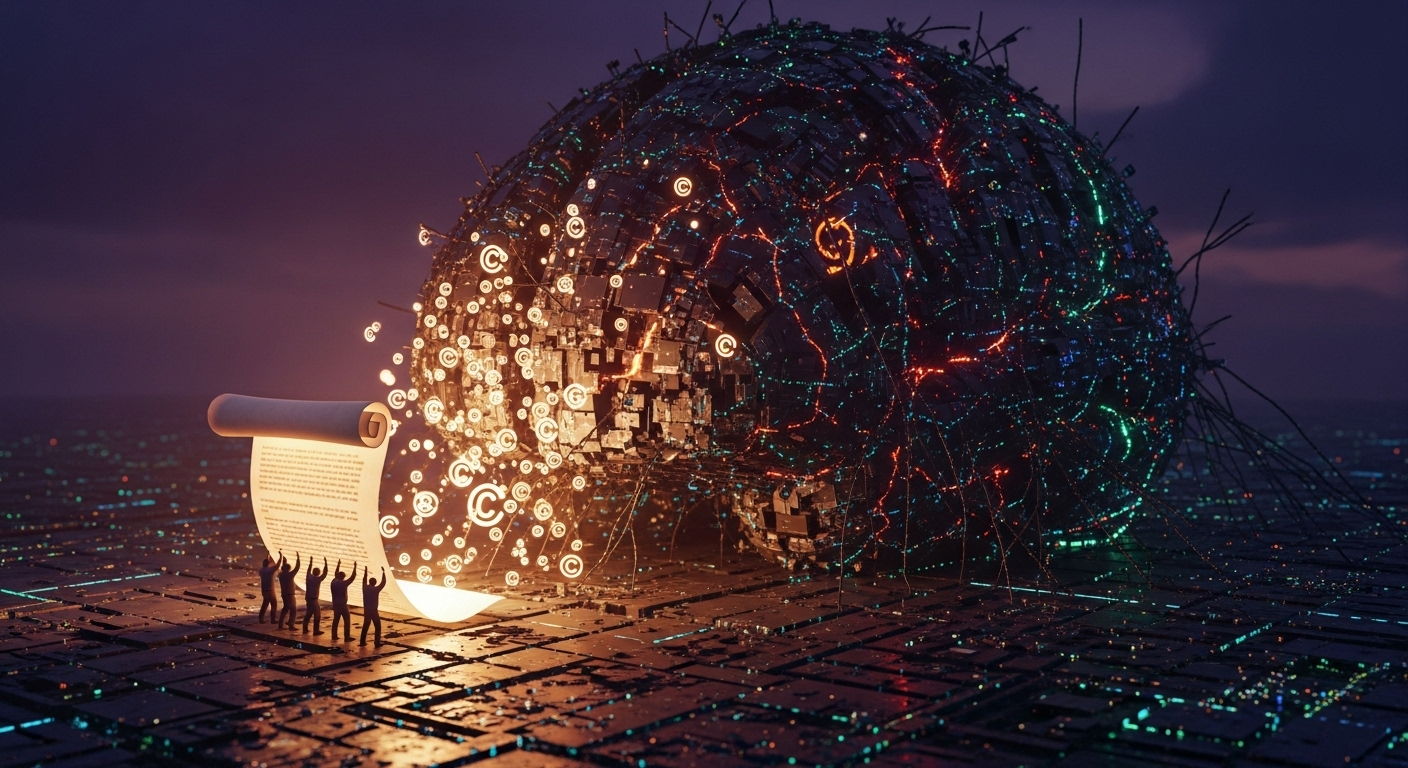So, I was rummaging through the internet’s back alleys, past the memes and the cat videos, and stumbled upon something truly juicy. Something that’s got the big players in the AI world sweating like they just ran a marathon in a server room. We’re talking about a copyright class action lawsuit so massive, it’s being called the largest ever certified against the AI industry. Ouch.
Ever wondered what happens when the digital gold rush meets a very real legal bill? Well, we’re about to find out. For a while now, generative AI models have been gobbling up vast amounts of data from the internet – think text, images, code, you name it – to learn how to create their magic. The problem? A lot of that data is, you guessed it, copyrighted material.
Now, creators, artists, writers, and musicians are saying, “Hold on a minute, you used my work to train your billion-dollar AI without asking, and you certainly didn’t pay me!” And it seems the courts are starting to listen. This isn’t just a few disgruntled artists; this is a class action, meaning potentially thousands of plaintiffs banding together to demand their due.
Why is the AI industry “horrified”? Because the implications are enormous. Imagine having to pay royalties for every piece of data your AI was trained on. Or worse, having to retrain models from scratch using only licensed data, which is a monumental, costly, and time-consuming task. It could fundamentally change the business model of these tech giants, making that “free lunch” suddenly very, very expensive.
This legal showdown isn’t just about money; it’s about defining the future of intellectual property in the age of artificial intelligence. Can an AI truly create something new if its foundation is built on existing copyrighted works? Where do we draw the line between inspiration and infringement?
It’s a fascinating, if messy, intersection of tech, law, and creativity. For years, the AI world has operated under a kind of “move fast and break things” mantra, especially when it came to data acquisition. But it seems the “things” they broke might just be the very laws designed to protect human creators. And now, the bill is coming due.
So, what’s next? Brace yourselves for a wild ride. This lawsuit could set precedents that reshape the entire AI landscape, forcing companies to rethink their data strategies and potentially opening up new avenues for creators to be compensated. Or, it could just be a very expensive lesson in digital ethics. Either way, it’s going to be interesting to watch the titans of AI navigate this legal minefield. Time to pay the piper, perhaps?
